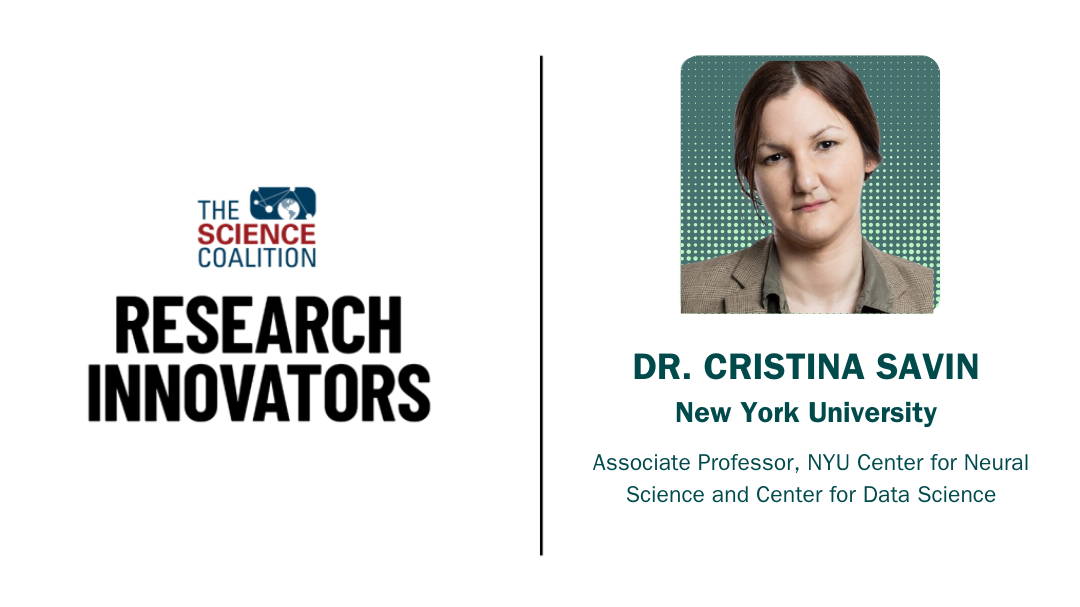Dr. Cristina Savin: Cracking the Neural Code of Decision-Making
Dr. Cristina Savin, Associate Professor at New York University’s Center for Neural Science and Center for Data Science, is pioneering research at the intersection of artificial intelligence and neuroscience — revealing how biological systems learn, adapt, and make decisions in complex environments.
At New York University (NYU), Dr. Savin leads a research group that explores how the brain adapts and processes information. Her lab develops computational models that link animal behavior, brain activity, and artificial learning systems. Her team examines phenomena such as context-dependent decision making, using tools from statistics, machine learning, and neuroscience to analyze behavioral and neural data. One of Dr. Savin’s recent studies, funded through a National Science Foundation (NSF) and National Institutes of Health (NIH) Collaborative Research in Computational Neuroscience (CRCNS) grant, investigates how rodents learn to value delayed rewards. It explores the brain’s ability to embrace patience and goal-directed behavior.
Modeling the Mind and Beyond
In this long-term CRCNS collaboration, Dr. Savin’s research group builds AI agents that mimic the complex decisionmaking behaviors of animals. Her team discovered that, unlike rats, standard AI agents fail to learn tasks unless they are trained with curriculum learning — akin to a “kindergarten” approach, where agents master foundational subskills before tackling the overall challenge. This method, known as behavioral shaping, mirrors real biological education and suggests that animal-like intelligence may depend on staged, experience-based development, rather than brute-force learning.
The implications of this research extend far beyond neuroscience. Understanding how biological systems solve problems can inform more efficient AI architectures for robotics, adaptive control, and autonomous systems – helping American researchers uncover new insights about how to continue optimizing this critical technology.
Powering Progress: Federal Funding
Federal programs like CRCNS are essential engines for high-risk, interdisciplinary research. These initiatives fund collaborations that merge theory with real-life experiments and push the frontiers of discovery across the biology and artificial intelligence fields.
Dr. Savin’s federally funded work exemplifies how government investments in basic scientific research fuel advancements that private industry alone cannot sustain. Without robust and sustained federal support, our nation cannot continue leading the world in understanding the foundations of intelligence — in our brains and in our algorithms.


